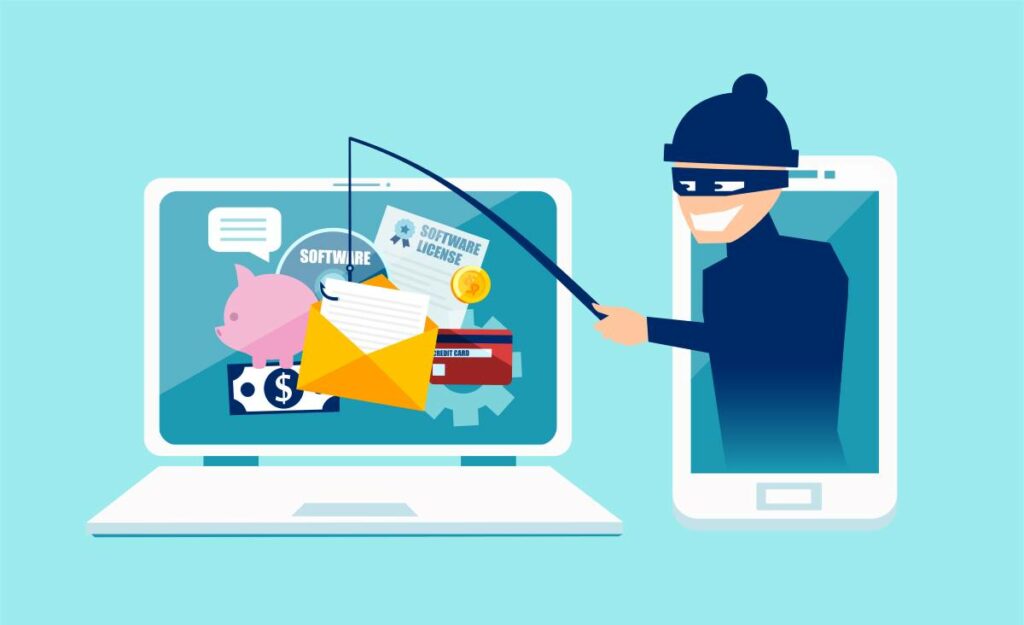Identity theft is one of the increasing vices affecting Americans in this digital age. With so much personal information on the internet, it has become easier for bad actors to steal and compromise people’s identities.
The consequences of identity theft can be impactful, leaving victims struggling for a long time to get their lives together. This article delves into identity fraud, types, identity theft protection, victim assistance, and much more.

What Is Identity Theft?
Identity theft is the process of obtaining the personal or financial information of an individual, business, or corporate organization to utilize the identities to commit a host of vices. Some include unauthorized financial transactions, leaking trade secrets, cyber crime, blackmail, etc.
Also known as identity fraud, it typically occurs when someone steals sensitive information such as your Social Security Number (SNN), credit card details, company login codes, etc. Some criminals also go through broken or discarded hard drives and old computers and thaw through social media accounts to harvest information.
Types of Identity Theft
There are different types of identity theft. They include:
- Social Security identity theft. Here, a criminal obtains your Social Security Number and uses it to apply for credit cards and loans without paying the outstanding balances. They can also use your Social Security to access federal and state benefits.
- Financial identity theft. In this case, someone uses your identity to obtain benefits, products, credit, and others.
- Medical identity theft. This type usually involves someone stealing your information to access medical care.
- Child identity theft. Here, a criminal uses the real identity and Social Security number of a child to find employment, obtain residence, loans, or avoid arrests on outstanding balances.
- Criminal identity theft. This form of theft involves a person posing as another person during an arrest to avoid summons or prevent the discovery of a warrant that’d be issued in their real name.
- Tax identity theft. Here, someone uses your personal information to file a bogus federal or state tax return and collect a refund before you discover it.
It is important to report identity theft to the police immediately to prevent its impact and bring the criminals to book.
Signs of Identity Theft
There are several warning signs of identity theft. It is vital to take quick action as soon as you spot these signs:
- Unexplained changes in credit score. If you notice a strange drop in your credit score, it could be a sign that someone has used your information to open new lines of credit.
- Unauthorized withdrawals. If you receive any notifications of unexplained and unauthorized transactions, it is a red flag that someone has infiltrated your accounts.
- Changes in your bank statements. If you notice inaccuracies in your bank statements, it could be a warning sign to take action immediately.
- Receiving bills for unexplained debts. If you start receiving bills for unauthorized debts, someone may have used your accounts to make payments or apply for a loan.
How To Prevent Identity Theft
Identity theft has a significant consequence on your personal life or business. Fortunately, there are several steps you can take to prevent its occurrence. They include:
- Shred unwanted documents. Before discarding confidential documents and other information, ensure it is properly shredded
- Use strong passwords. Use strong and unique passwords to protect your personal and business information. It is recommended to create different passwords for multiple accounts.
- Periodically monitor your credit report. It is advisable to regularly monitor your bank and credit report for any anomalies.
- Exercise caution online. You should only browse and share personal information on secure websites and trusted connections to prevent cybercrime.
- Secure your personal information. Your confidential documents, Social Security number, and bank account information should be kept in a secure location away from prying eyes.
How to Report Identity Theft
If you are a victim of identity theft, you should take the following steps:
- File a report with the Federal Trade Commission (FTC) online or on the phone at 1-877-438-4338.
- Contact any of the three credit reporting agencies (Equifax, Experian, and TransUnion) and request that a fraud alert be placed on your credit report. This will help notify lenders to confirm your identity before approving any credit request.
- Notify your bank and credit card companies to report any anomalies with your statements and transactions.
- You can also notify other agencies, such as the Internal Revenue Service, Department of Motor Vehicles, and Social Security Administration if you believe your identity has been used for fraudulent activities.
- Report identity theft to the police to document the fraud.
Victim Assistance
There are several victim assistance programs available to victims of identity theft. They include:
- Identity Theft Resource Center (ITRC). The ITRC is an organization that provides free assistance, including personalized case management, credit and identity restoration, and resources to help prevent such occurrences in the future.
- Federal Trade Commission. The FTC also provides a step-by-step recovery plan, sample letters and forms to send to creditors and lenders, and assistance from identity theft specialists.
- Credit reporting agencies. Experian, Equifax, and TransUnion also provide free credit restoration and monitoring.
Protect Yourself from Identity Theft
Identity theft comes with several long-term consequences for individuals and corporate agencies. When thieves and cybercriminals get access to your confidential and sensitive information, it could lead to unauthorized financial transactions, the leaking of trade secrets, the opening of new credit cards, and many more.
To avoid falling victim to identity theft, you should proactively ensure you properly shred discarded documents, encrypt your login details, and securely protect your information against breaches and hacks.





